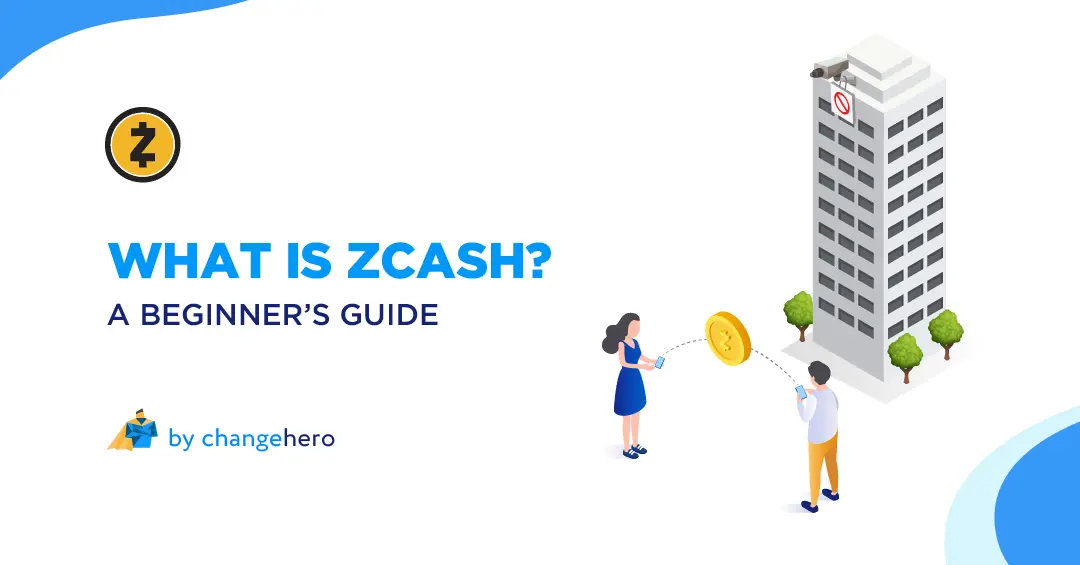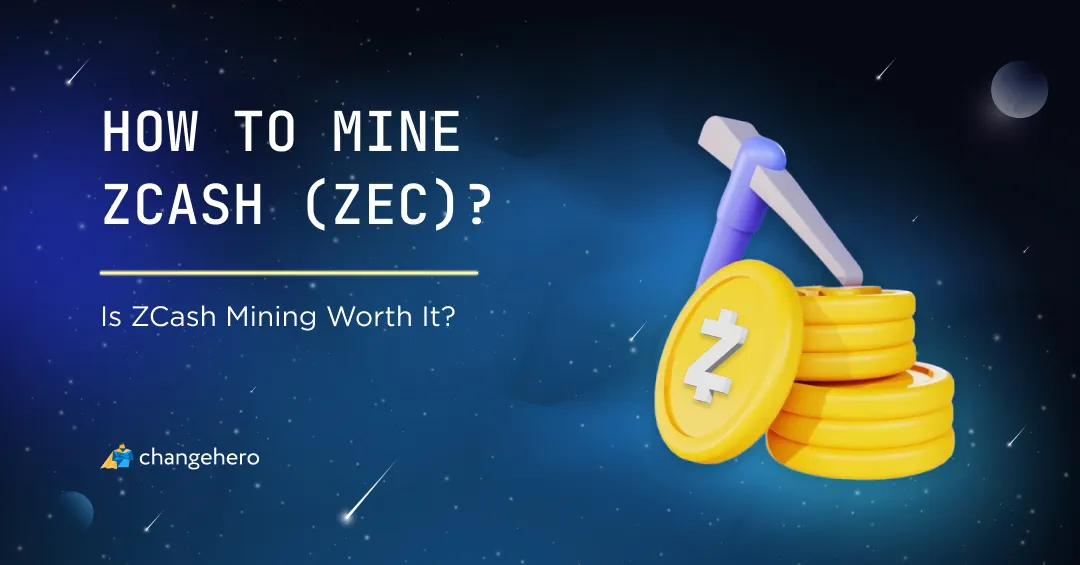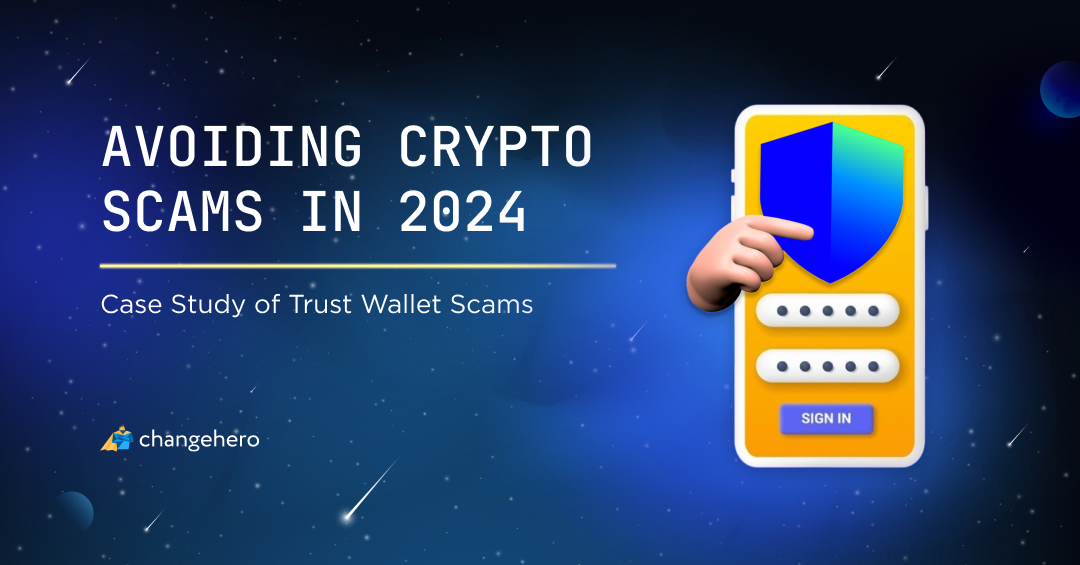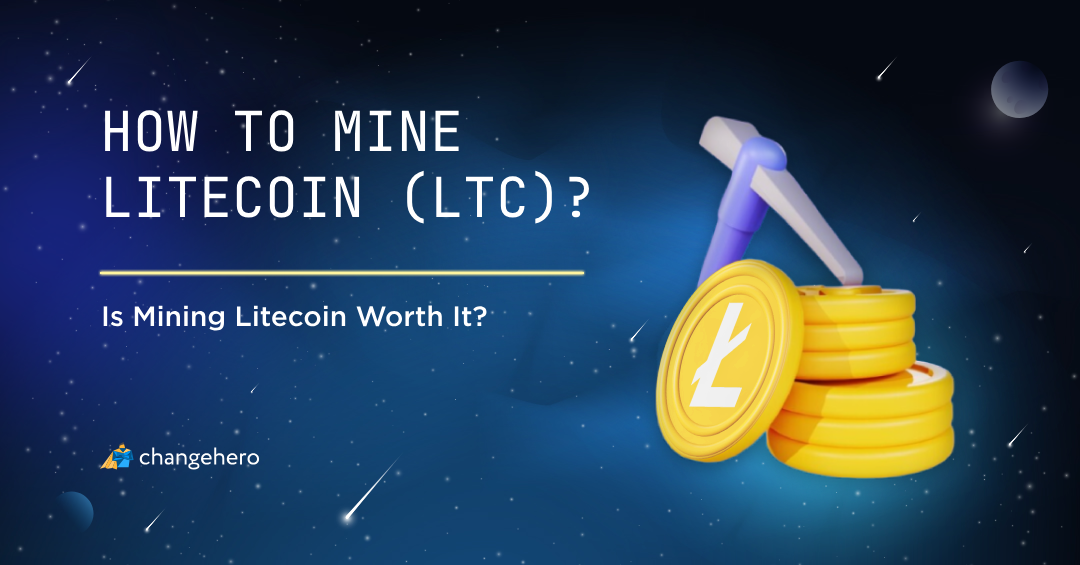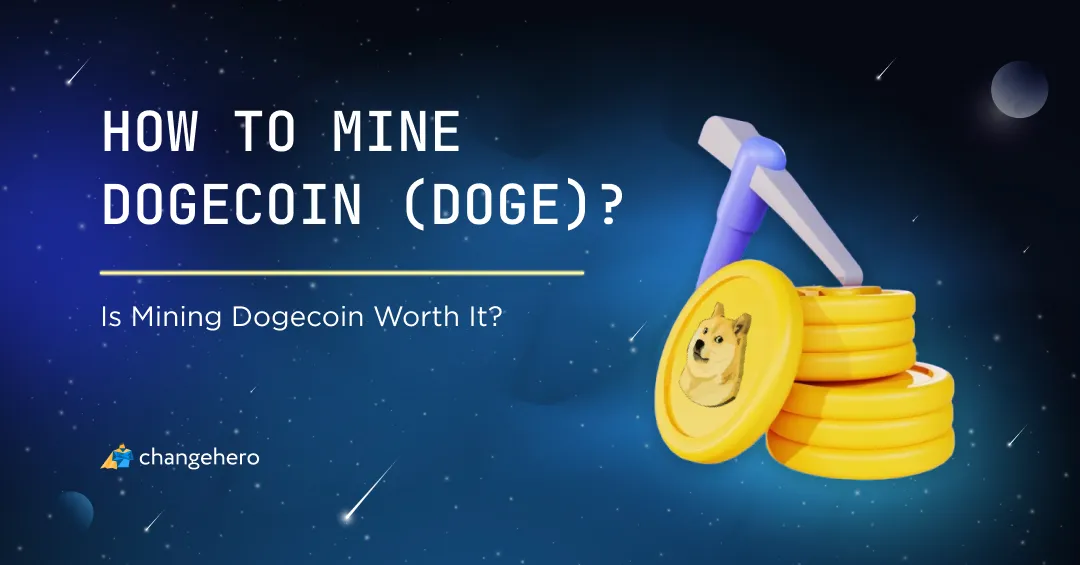Most cryptocurrencies, like Bitcoin, have fully transparent ledgers but some argue it turns them into a surveillance nightmare. What is Zcash doing to solve this problem? Learn in our Zcash guide!
Key Takeaways
- Zcash is a cryptocurrency that lets users hide information about the balances and exact addresses. To make it possible they utilize a cryptographic technique called zero-knowledge proof, or zk-SNARKs.
- Zcash’s viewing keys enable the selective disclosure of fully encrypted transactions, helping make Zcash compliant with financial regulations such as AML.
- Migration to the Proof-of-Stake (PoS) consensus algorithm is in the discussion, and the community decides whether to go ahead or not. PoS privacy coins are not unheard of but were not possible without zk-SNARKs.
What is Zcash?

Zcash is an open-source cryptocurrency with enhanced privacy features. It sets out to provide an alternative to the pseudonymous transparent ledgers. Zcash enables privacy options on-chain, leveraging cryptography to conceal information. How does it work and what cryptographic technology exactly does it use? Here is an explanation.
What is Zk-SNARK and How Does It Work?
It is only natural that a cryptocurrency would use cryptography to encrypt and hide data. The technology Zcash uses is called zk-SNARKs, or Zero-Knowledge Succinct Non-Interactive Argument of Knowledge. Using cryptography, Zcash blockchain can help users transact with one another without disclosing transaction information on-chain. This is what “zero knowledge” stands for: you know the transaction is valid but specific information about transaction itself is concealed. When opting in for a shielded transaction using a z-address, a user can send currency to someone else without their balances or addresses being visible to everyone else. A thought experiment called “Ali-Baba Cave” is often used to illustrate it.

Peggy (Prover) enters the cave and chooses a random path to a “magic door”. They know the code (key and prerequisites for a transaction) to open it. Victor (Verifier) follows into the cave and stands at the branching point. They don’t know which path Peggy chose or on which side of the door they are standing. Victor can ask them to come back to the branching point either through path A or B at random, and Peggy can do it because they can pass through the door. The whole process can be repeated until Victor is convinced Peggy knows the magic word. Thus, without explicitly knowing the process or the prerequisites to confirm the transaction, a verifier can approve or decline a prover’s action. In the case of Zcash, provers are the users sending out a transaction and verifiers are the miners who decide if transactions can be accepted.
History and Team
The history of Zcash started in 2013 when it was proposed as a privacy extension to Bitcoin. The proposal was turned down for being too computationally intensive and too experimental at the time. With a dedicated team of researchers and developers, the Zerocoin protocol was made from an extension into a stand-alone cryptocurrency protocol. On October 28, 2016, it was finally launched under the name Zcash. The launch was overseen by the ECC — Electric Coin Company (prior to 2019 — Zcash Company), which was founded by Zooko Wilcox-O’Hearn in 2016. ECC, Zcash Foundation, Zcash Open Major Grants (ZOMG), Zecwallet Lite and many others contribute to the development of Zcash. But, it’s the community that plays a crucial part in the governance.
What is ZEC?
Zcash is first and foremost a cryptocurrency protocol, and its native currency has the ticker ZEC. When it comes to supply and tokenomics, ZEC is not that different from Bitcoin: it is also limited by 21 million coins. It is also using a Proof-of-Work consensus algorithm, which means it is mineable, and like Bitcoin it undergoes halvings. In an event called halving, the miner’s rewards decrease in half. This event takes place at specific block heights, roughly every four years. There is one detail that makes Zcash mining very different from Bitcoin. In ZEC, each new block produces 3.125 ZEC, 80% of which go to the miner. The rest is distributed to a Community Development Fund. The Community Development Fund allocates funding to Zcash Foundation, ECC and Zcash Open Major Grants.
What is Zcash used for?
Zcash is a privacy-preserving alternative to traditional currencies and pseudonymous cryptocurrencies. As such, its primary use case is payments and value transfer. Online registries such as Cryptwerk, Accepted Here or Pay With Zcash have hundreds of vendors and merchants who accept ZEC. The latter even has a category for businesses where you can pay with a shielded z-address.
Comparison with Similar Projects
Zcash is just one of the privacy coins but what makes it stand out among the competition: Monero, Dash and Verge? Monero is a currency in which transactions are opaque by default, and users have to opt-in for transparency. For this reason, it has some issues with regulations and compliance. Unlike Monero, Zcash can leverage the argument of optional privacy to secure more exposure at exchanges and services that comply with anti-money laundering measures. Dash and Verge Currency both have privacy options as well. Dash uses mixing to obfuscate coin paths and Verge obfuscates user’s IP addresses. In Zcash, privacy is achieved through cryptography while Verge relies on Tor and I2P and Dash makes tracing harder but not impossible.
What is Zcash criticized for?
Privacy coins often get criticized by the regulators, and Zcash is no exception. There’s a common misunderstanding that Zcash does not comply with the AML standards. In reality, the regulatory bodies can implement AML as Zcash offers optional privacy. On the other hand, this may not make privacy enthusiasts happy. The anonymity set of Zcash depends largely on the amount of z-addresses used: the more users opt in, the more opaque the ledger is.
Partnerships and Future Plans
Zcash news of late are reporting on a new and unexpected path Zcash wants to take: transition to Proof-of-Stake. However, the decision is in the hands of the community. There are hardly any prominent PoS privacy coins on the market right now because a staker’s balance has to be known. Zk-SNARKs make a PoS privacy coin possible because the conditions for staking can be checked without disclosing them to the public. Thanks to the support and efforts of ECC, ZEC can keep expanding the user base via integrations. The ECC team is in the process of changing their strategy from engineer- to user-focused, meaning ZEC will be treated more like a product.
Social Media posts
1) Tested @NighthawkWallet with some $ZEC. There’s room for improvement, but it’s definitely a great way for noobs to shield their ZCASH. It currently takes 10 confirmations (about 10-12mins) before you can shield using this wallet, so be patient. Auto shielding roles out in a pic.twitter.com/DWCTXx0qW8
— “Dr. El Don” ⓩ🛡 (@El_DoN_EV) August 13, 2021
User Dr. El Don gave instructions on how to use a shielded address in Zcash. The latest release allowed mobile users to enable auto-shielding in a wallet of their choice.
#Zcash should be rebranded as a "security" coin.
Security is achieved through privacy. The true purpose of privacy is security. Privacy has lost its meaning in today's world. Security is easier to explain. Security also important no matter the culture.$zec — Francois Delacroix Boreaugard 🛡 (@roommatemusing) August 17, 2021
Anonymous user, going by Francois Delacroix Boreaugard, voiced an opinion on the future of ZEC. They consider privacy synonymous with security and Zcash being able to offer more than just being a privacy coin.
A successful transition to Proof of Stake would necessarily require support from #Zcash $ZEC users, a legit governance process, and a well designed technical migration process. @least_nathan outlines what the technical migration process might look like:https://t.co/jgTQHSO5G2
— Electric Coin Company 🛡️ (@ElectricCoinCo) August 16, 2021
The official account of ECC underlines the importance of community consensus when it comes to drastic changes such as PoS transfer. Of course, the company will be the one developing it but ignoring community input would go against everything cryptocurrencies stand for.
What is the Best ZEC Wallet?
To use Zcash to the fullest extent, meaning both transparent and shielded addresses, one has to download specific wallets. The most reliable way to store ZEC and use its privacy features is to run a full node or to use a Zcash-specific wallet like Zecwallet Lite on desktop or Nighthawk Wallet on mobile are available. For hardware storage of Zcash, users can choose Trezor devices. Many multi-currency wallets like Coinomi, Trust and Exodus also have support for ZEC transparent addresses. In Exodus and Trezor, you can use the exchange option provided by ChangeHero right in the app to swap crypto with Zcash.
How to buy Zcash?
Privacy coins can be tricky to find on centralized exchanges. You don’t have to worry, though, because we have handled the search of trusted liquidity providers already! You can get it on ChangeHero at the most competitive rates. We made sure that the experience will be easy and secure.
How to Exchange ZEC?
To make our Zcash guide complete, here are the step-by-step instructions on how to buy Zcash on ChangeHero with crypto. It’s really easy:
- Choose the currencies on the home page, amounts and the type of exchange. Provide your ZEC wallet address in the next step and check the amounts;
- Double-check the provided information, read and accept the Terms of Use and Privacy Policy;
- Send in a single transaction the sum of cryptocurrency you will be exchanging. For Fixed Rate transactions you have 15 minutes before it expires;
- From here on, you won’t need to do anything. At this step we are doing all the work: checking the incoming transaction and doing the exchange as soon as it arrives;
- As soon as the exchange has been processed, your ZEC is on the way to your wallet. And so, the transaction is finished!
Remember that you can reach our support in the chat on our website or through the email: [email protected].
Conclusion
Zcash is able to combine the security of privacy coins with regulatory standards, making it future-proof in comparison with the alternatives. What Zcash’s future is going to look like is being decided right now, so now might be the best time to dive in. To check out other articles similar to our Zcash guide, make sure to subscribe to our blog and ChangeHero on Twitter, Facebook, Reddit and Telegram.
Frequently Asked Questions
What is Zcash?
Zcash is a cryptocurrency protocol with optional privacy features. They are made possible by zk-SNARKs, a cryptographic technique that only needs a proof without disclosing the solution.
How is Zcash different from Bitcoin?
Zcash made significant changes from the original Bitcoin protocol. It includes shielded z-addresses using which transactions can be made without disclosing amounts or addresses.
Does Zcash have a future?
Electric Coin Company, Zcash Foundation and ZOMG are some of the many independent bodies contributing to the development of Zcash. In a more distant future, Zcash is planning to migrate to a Proof-of-Stake but it requires community support.
Where is Zcash accepted?
Hundreds of businesses listed on Cryptwerk, Accepted Here or Pay With Zcash accept ZEC.
Is Zcash legal?
Zcash cannot be traded in Japan and South Korea. Everywhere else in the world there are no regulations stating that privacy-enabling coins are illegal.

